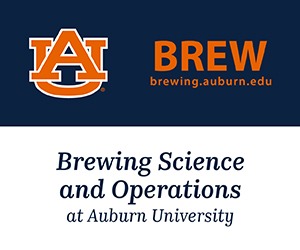Fat Head’s Brewery’s Imperial Porter
All-Grain Recipe
(5 gallons/19 L, all-grain)
OG = 1.086 FG = 1.024
IBU = 50 SRM = 56 ABV = 8.6%
Ingredients
5.5 lbs. (2.5 kg) Golden Promise pale ale malt
4 lbs. (1.8 kg) Pilsner malt
4 lbs. (1.8 kg) Fawcett Pearl pale ale malt
1.2 lbs. (0.54 kg) chocolate malt
1.1 lbs. (0.49 kg) Munich malt (10 °L)
9.6 oz. (0.27 kg) brown malt
8.8 oz. (0.25 kg) Carapils® malt
7.2 oz. (0.2 kg) crystal malt (120 °L)
2.9 oz. (82 g) Briess Midnight Wheat malt
2.6 oz. (73 g) debittered black malt
2.6 oz. (73 g) roasted barley
9 AAU Magnum hops (60 min.) (0.75 oz./21 g at 12% alpha acids)
6.9 AAU Simcoe® hops (30 min.) (0.5 oz./14 g at 13.8% alpha acids)
6.2 AAU Mosaic® hops (5 min.) (0.5 oz./14 g at 12.4% alpha acids)
White Labs WLP013 (London Ale), Wyeast 1028 (London Ale), or
Lallemand Nottingham yeast
¾ cup corn sugar (if priming)
Step by Step
Using a fairly thick mash, achieve a single infusion mash temperature of 150 °F (66 °C). Hold at this temperature for 60 minutes or until converted. It is advisable to hold the highly roasted grains (chocolate, Midnight Wheat, black malt, and roasted barley) until you are ready to recirculate to reduce astringency. Start lautering by raising the mash temperature up to 168 °F (66 °C), then hold for ten minutes. Add the roasted and crystal grains then recirculate. Vorlauf until your runnings are clear before starting to collect. Since you are doing a 90-minute boil, collect about 7 gallons (26.5 L) of wort. Add the hops as stated in the recipe.
Upon completion of the boil, chill the wort to 65 °F (18 °C), pitch a healthy count of yeast and oxygenate thoroughly. When fermentation is about ⅔ complete (at 1.040), let temperature free rise to 67 °F (19 °C).
Total fermentation time should be at least two weeks so the yeast has time to clean up off-flavors. Keg and carbonate to 2.6 v/v or bottle.
Partial Mash Recipe
(5 gallons/19 L, partial mash)
OG = 1.086 FG = 1.024
IBU = 50 SRM = 56 ABV = 8.6%
Ingredients
3.3 lbs. (1.52 kg) Muntons Maris Otter light liquid malt extract
2.4 lbs. (1.1 kg) Pilsen dried malt extract
2.16 lbs. (1.1 kg) pale ale dried malt extract
1.2 lbs. (0.54 kg) chocolate malt
1.1 lbs. (0.49 kg) Munich malt (10 °L)
9.6 oz. (0.27 kg) brown malt
8.8 oz. (0.25 kg) Carapils® malt
7.2 oz. (0.2 kg) crystal malt (120 °L)
2.9 oz. (82 g) Briess Midnight Wheat malt
2.6 oz. (73 g) debittered black malt
2.6 oz. (73 g) roasted barley
9 AAU Magnum hops (60 min.) (0.75 oz./21 g at 12% alpha acids)
6.9 AAU Simcoe® hops (30 min.) (0.5 oz./14 g at 13.8% alpha acids)
6.2 AAU Mosaic® hops (5 min.) (0.5 oz./14 g at 12.4% alpha acids)
White Labs WLP013 (London Ale), Wyeast 1028 (London Ale), or
Lallemand Nottingham yeast
¾ cup corn sugar (if priming)
Step by Step
Heat 3 gallons (11.4 L) of water in your mash tun and add only the Munich and brown malts (in a muslin bag) for mashing. Achieve a mash temperature of 150 °F (66 °C). Hold at this temperature for 60 minutes or until converted. With about 10 minutes to go during the initial mash, add all the roasted grains (in a separate muslin bag). These grains do not need to be mashed and adding them later may help reduce astringency from the highly kilned malts.
After mash is completed, let the liquid drain from the grain bags, remove bags, then increase temperature to near-boiling. Remove from the heat source and slowly stir in all the malt extracts. Be sure extract is fully dissolved, then return to the heat source and boil for 60 minutes adding hops as indicated in the ingredients list. (Note: a 90-minute boil is not necessary to drive off DMS since that takes place during the extract’s creation process.)
Upon completion of the boil, chill the wort to 65 °F (18 °C) and top up your fermenter to a total of 5 gallons (19 L) with pre-boiled, pre-chilled water. Pitch a healthy count of yeast and oxygenate thoroughly. When fermentation is about ⅔ complete (at 1.040), let temperature free rise to 67 °F (19 °C). Total fermentation time should be at least two weeks so the yeast has time to clean up off-flavors. Keg and carbonate to 2.6 v/v or bottle.
Tips For Success
According to Brewmaster Matt Cole, the non-traditional addition of roasted barley adds a nice level of complexity to balance the chocolate flavors of the other dark malts.
He suggests Crisp and Simpson’s malts as the best choices for the character malts for this beer due to their high quality and flavor profile.






